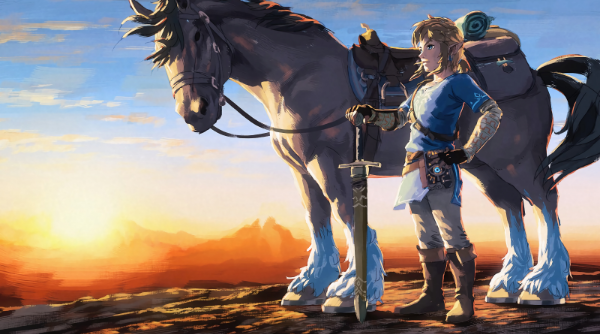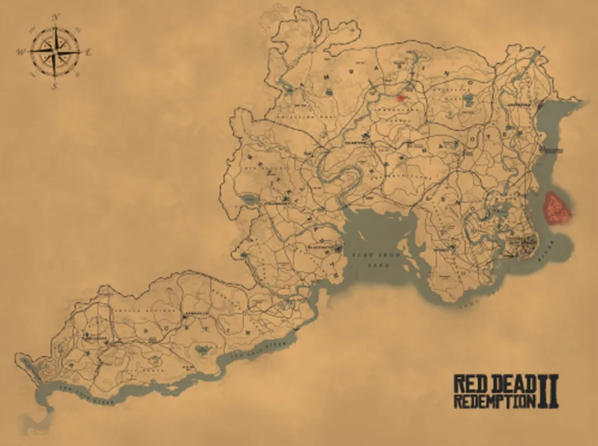How much freedom is too much freedom in video games?
Playing video games is all about freedom, players are given choices and abilities to act within those choices which gives them incentive to finish the campaign, story, objective or whatever goal. This might be forced upon them through story missions or optional objectives like side missions or non-linear games.
Choices are going to be placed in every video game to entice a player to try new options for different playthroughs. Here’s two ways games give the illusion of choice for players using two different famous examples.
Gameplay
The Legend of Zelda: Breath of the Wild has a plethora of ways to defeat your enemies with each new way having just as much excitement. The game gives you shields, hammers, swords, bows, bats and... leaves? Attacks aren't limited to melee as the game also gives you certain abilities and environments to use to your advantage. Due to durability systems, weapons will break if used too long, giving the player an incentive to never stay with the same weapon. This means that your melee weapons have a built-in ammo counter to go along with your arrows which can be super rare. Shooting arrows is the best method to taking down enemies but you can't just shoot them all the time due to limited supplies. The game forces you to experiment with using different tactics and weaker combat tools that you never would have tried. This gives users a freedom of choice within gameplay to experiment with different ways to take down foes.
Red Dead Redemption 2 has a combat which is nearly opposite where the game gives you unlimited resources to work with whether its rifles, revolvers, pistols, lassos, bows, dynamite and knives. The game gives you many ways to gain resources for your weapons like going to town to buy ammo from a shopkeeper or picking up ammo from your camp or just from downed enemies. After a few missions you’ll never be short on money to buy ammo so while shooting enemies can be fun at first, this abundance eventually starts to wear on you as every experience begins to feel the same and with the most powerful option being open for you, it gives you no real incentive to try other ways to attack bandits like stealth, or lassos or dynamite because it is strictly better just to deadeye shoot enemies in the head rather than putting in extra effort for the same reward.
Story
Zelda takes a different approach with story as its story could be considered quite forgettable (the reason I'm saying this is because I literally forgot it). The main goal for the story is to rescue Princess Zelda from Ganon but the game gives you so many distractions to keep your mind preoccupied. Rather than focusing on the plot, you can find more powers, buy and maintain a house, find and cook new recipes, personalise your gear, buy equipment to explore different domains and so much more. The game also introduces different races and species for link to interact with but very little character development is put into them so each person you talk to feels like a quest giver rather than a character with their own story.
Red Dead meanwhile has a story so good it is practically a reason for players to pick up the game. The depth that Rockstar put into the world building and character interactions of what your gang and crew go through is nothing short of remarkable writing with each conversation making the player relate and hate with each diverse relationship Arthur has with not only the main cast but also the average NPCs that you can meet during free roam to make each interaction in every way impactful to the player.
Elements of Surprise
During moments of exploration in Breath of the Wild, you will randomly encounter an ambush or a treasure chest, a boss battle, an enemy outpost, a village or a shrine. The game has so many exciting ways for the player to explore but solely relies on the players own eyes and mapping to remember where these locations are and to find them yourself. Zelda throws its players into the world with a pair of binoculars and tells the player nothing about how to find its locations leaving the player always guessing on their toes as to what their new adventure comes their way from them just finding it themselves by wandering randomly.
Red Dead's open world has an equally massive and detailed open world, but it also has a mission system which tells the player explicitly where what they want to find is and which route to take is the best to find it. The mission icons tell the player that something in this location leads to something exciting which gives the player new reason to explore that area. In many ways giving this information to the player is extremely convenient and cuts out unnecessary wasted time when the player already has a map to their location already mapped out for them. But doing this feature loses out on the surprise and excitement of finding something themselves because the game has removed the freedom of choice from the player discovering it themselves. There are of course the random encounters that the player can find while roaming the world but none of these experiences really become memorable and instead become events to distract the player before continuing their intended route again.
Conclusion
These options are just the tip of the iceberg when it comes to games designers adding variety and tools to keep players thinking on their toes in every possible situation. No matter what type of game players enjoy, it's needed that the freedom of non-linear paths in any playthrough adds to the replay value of any game, and gives gamers the chance to approach their favourite games from new angles and to play their favourite games in ways they never would have imagined because they’ve already played it they’ve way they would have, why not play it in a way they wouldn't?




